April 14, 2025 | 12:40 GMT +7
April 14, 2025 | 12:40 GMT +7
Hotline: 0913.378.918
April 14, 2025 | 12:40 GMT +7
Hotline: 0913.378.918
According to the Binh Phuoc Provincial Department of Industry and Trade, cashew exports dropped by 30 to 50 percent in the first half of 2023 due to the extended effects of Covid-19 and the global economic crisis.
Some businesses have closed, ceased operations, or even declared bankruptcy as a result of the market's shrinkage. If the situation persists, the negative impact on the industry, which is considered the driving force of the province, will increase.
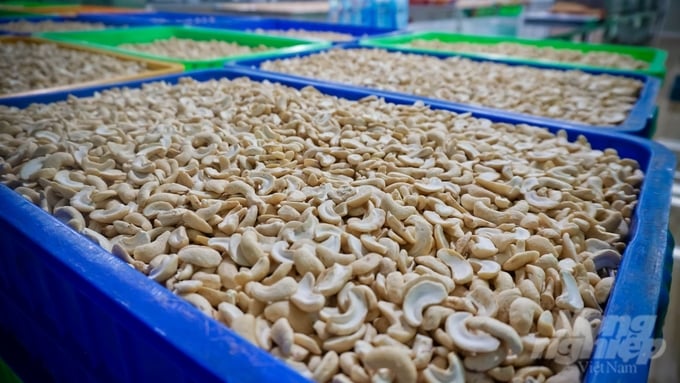
Enterprises in Binh Phuoc cashew industry are facing many difficulties. Photo: Le Binh.
Tran Quoc Hung's enterprise in Phuoc Long commune has been in a state of routine for several months. If the monthly average capacity of the company used to be 100 tons of cashew nuts, it is now only one-fifth of that amount. As a result, the company was compelled to lay off nearly half of its workforce and suspend some production lines.
It is estimated that businesses lose between 4,000 and 5,000 VND for every kilogram of cashew nuts that they sell or export. The cashew nut market has been steadily declining in recent years, and it is also exceedingly difficult to sell and export. This means that the greater your production, the greater your losses.
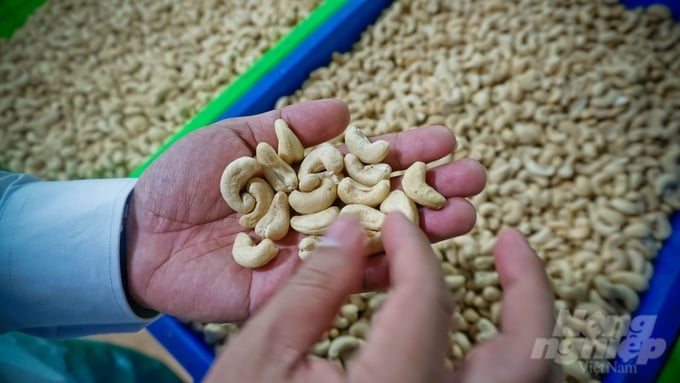
The impact of the global economic crisis hinders the brand "the world's number 1 delicious". Photo: Le Binh.
Hung revealed, "The price of raw materials is high, but the price of cashew kernels is continuously decreasing; we face many challenges and incur losses on a regular basis, so we must reduce capacity."
Ms. Huynh Thi Hoa, the owner of a raw cashew processing business in the town of Phuoc Long, must also leave a deposit of nearly 500 million VND for the purchase of 150 tons of raw cashew nuts despite suffering a similar loss situation. Because if it is returned to production, it is estimated that the business will lose an additional 200 million VND.
When asked about the "health" of cashew businesses in Binh Phuoc, a member of the Vietnam Cashew Association (Vinacas) revealed, "Cashew businesses that can be sold also die, but cashew businesses that cannot be sold also die." is that the more a business sells, the more money it loses, but if it doesn't sell, it can't generate cash flow and loses more money on storage and maintenance."
Despite being the leading exporter of cashew kernels for a number of years, the Vietnamese cashew industry has been limited because it primarily exports cashew kernels that have been barely processed. Businesses in Vietnam have increased their investments in deep processing, targeting higher segments of the value chain, in an effort to expand the industry's scope and position.
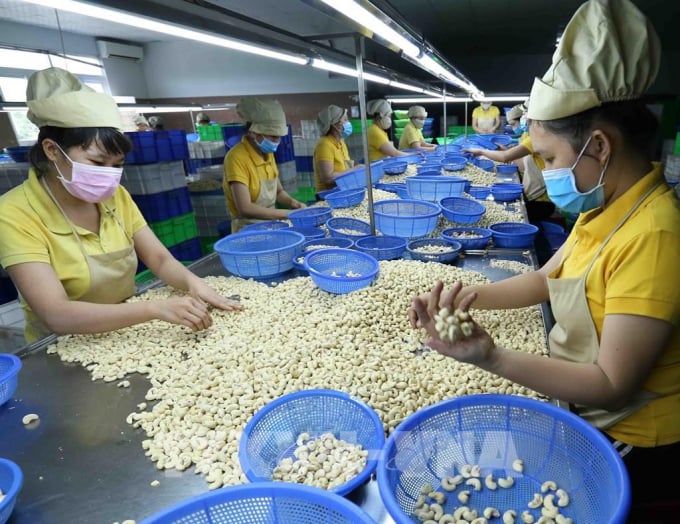
Deep processing from the source of raw cashew nuts in the country is the direction to affirm the name of the cashew industry. Photo: Le Binh.
In fact, many businesses have actively invested in modern equipment and equipment to improve deep processing over the years. Due to this, in addition to traditional products such as salted roasted cashews, numerous new products were introduced that were well received by the market, including honey cashews, spicy cashews, wasabi cashews, white sesame dried cashews, cashew chocolates, and others.
Businesses regard Phuoc Long town (Binh Phuoc province) to be a "cashew market" or a "cashew processing factory" because this is where a large number of cashew processing lines with a high capacity are located. The quantity of fresh cashew kernels in the area is insufficient for production and processing.
Some businesses have realized this in recent years and shifted their focus to production and deep processing. They devise their own strategy to "walk on the boulevard" in support of the business brand and the Binh Phuoc cashew kernel brand.
Vinahe Co., Ltd.'s business strategy for cashew kernels has evolved incrementally over many years. Consequently, 10% of the unprocessed cashew output has been extracted for production and further processing.

More and more deeply processed cashew products in Binh Phuoc are born, meeting the needs of domestic consumption and export. Photo: Le Binh.
Mr. Nguyen Hoang Dat, director of Vinahe Co., Ltd., implements a strict and confined production process based on the "one-way street" principle. Vinahe has been awarded the international certificate of international quality management by the British Retail Association BRCS; the US Food and Drug Administration has issued the FDA standard certificate; and Vietnam's Food Safety and Hygiene Department issues the country's food hygiene and safety certificate.
Mr. Truong Van Thanh was also engaged in cashew nut processing, production, and trading for a number of years. However, since he was aware of the value of Binh Phuoc cashew nut, he decided to pursue the original cashew nut business of Binh Phuoc.
Mr. Thanh, Director of the Nhu Hoang Agricultural Service and Trade Cooperative (district of Bu Dang), stated that Binh Phuoc cashew kernels have been evaluated and recognized internationally as the highest quality product with their own unique characteristics. Customers will prefer Binh Phuoc cashews over cashews from other countries due to their superior quality.
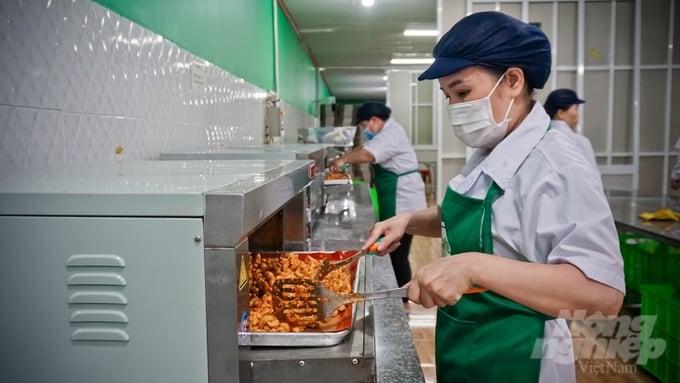
In addition to new business thinking, the investment in science and technology is also a factor for the Binh Phuoc cashew industry to step out of the safe zone for a long time. Photo: Le Binh.
Or, Mr. Vu Manh Tung, Director of Golden Cashew Nut Company Limited (Bu Nho Commune, Phu Rieng District), stated that if we export unprocessed cashews, we will only take them as input in the intensive processing of cashew partners, a mere shadow on the market.
Translated by Linh Linh
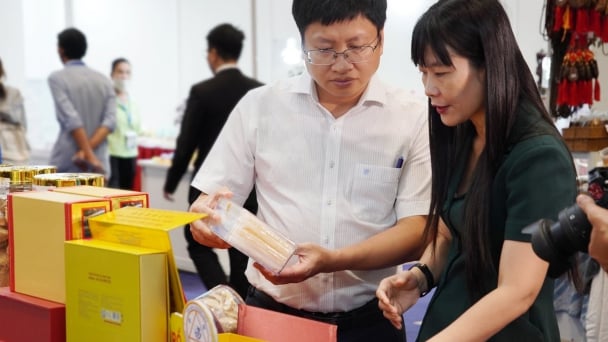
(VAN) KOCHAM Deputy President expects that Vietnam would accelerate innovation and development of bird’s nest-based products as a representation of Vietnamese culture.
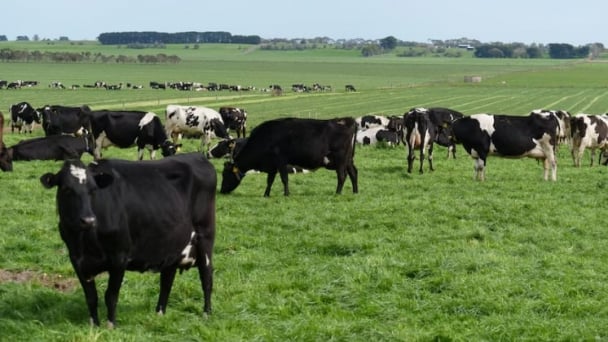
(VAN) Imported dairy products are weakening the local industry, according to dairy farmers and processors.
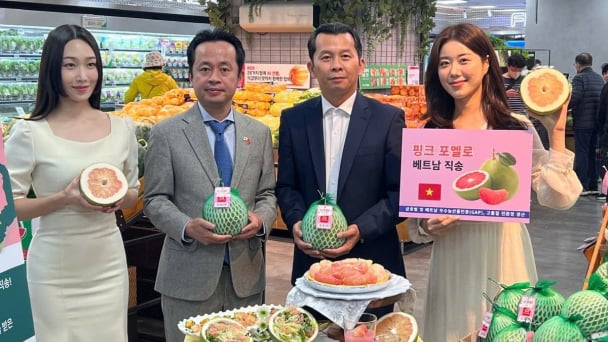
(VAN) April 10 marked a significant milestone for Vietnam's agricultural exports as Vietnamese pomelos officially became available at the Lotte Mart supermarket chain in South Korea.

(VAN) Vietnam is focusing on developing the legal framework and technical infrastructure for the carbon market, with committed support from global financial institutions.
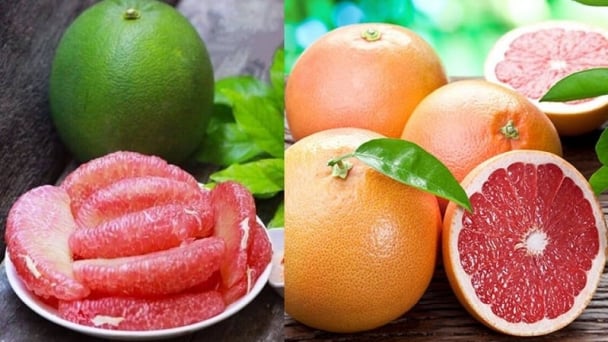
(VAN) The citrus fruits market in China is expected to slow down, but still show steady expansion, with volume reaching 56M tons and value reaching $71B by the end of 2035.
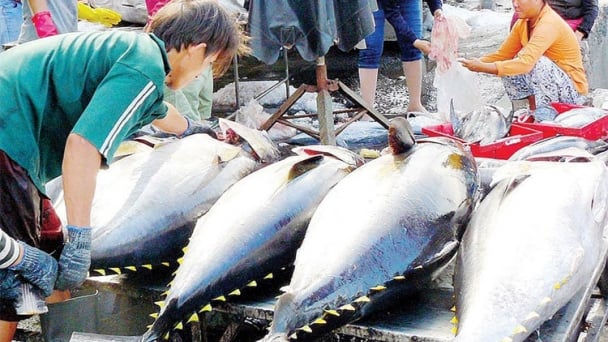
(VAN) The European Union issued a notice regarding the amendment of Annex III of Regulation (EC) No 853/2004 and aims to introduce new provisions in the fourth quarter of 2025.
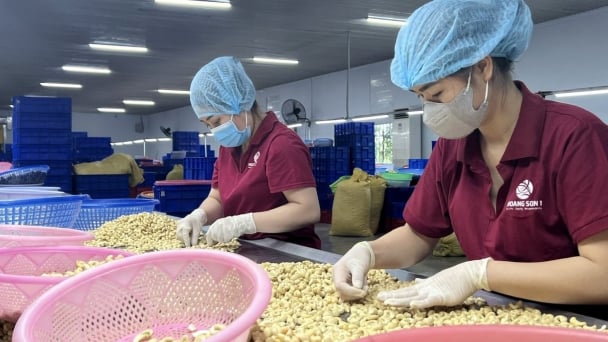
(VAN) Vietnam has great potential for exporting food to the global Halal market, but there is a need to build an ecosystem to develop this market.